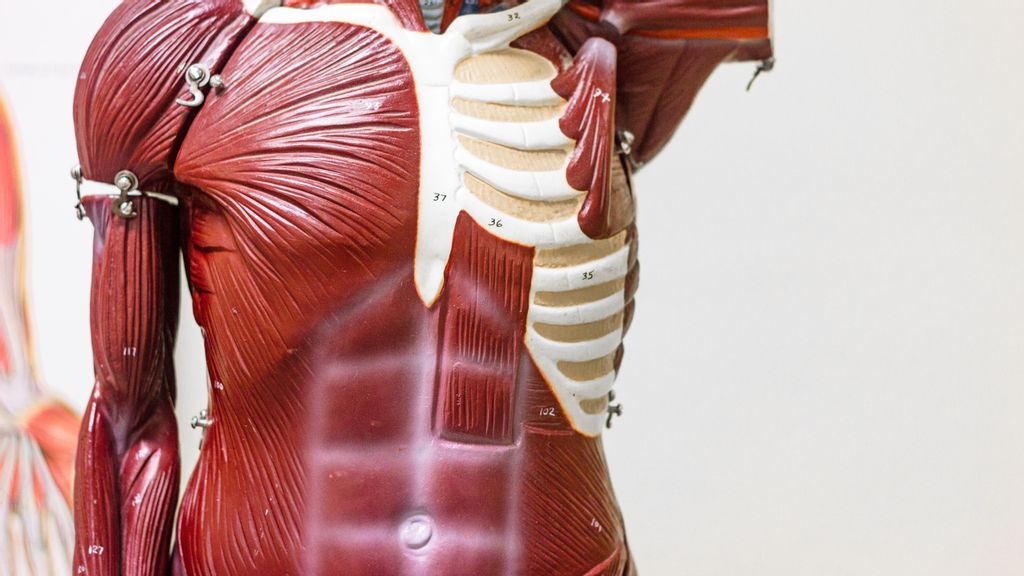A new approach that applies anti-inflammatory nanoparticles to chronically inflamed muscles— which could have major implications for treating muscular dystrophy — has been developed by a research team at Harvard’s Wyss Institute for Biologically Inspired Engineering and John A. Paulson School of Engineering and Applied Sciences.
Wyss Institute founding faculty member David Mooney led his team in the effort targeting muscular dystrophies, “a group of genetic diseases that lead to the progressive loss of muscle mass and function in patients, with the incurable Duchenne Muscular Dystrophy (DMD), which affects all the body’s muscles, primarily in boys, being particularly severe.”
Typically, DMD emerges in early childhood. While healthy babies are born fragile and continue to grow stronger, DMD patients continue to get weaker as they age. Most children with DMD use a wheelchair in their teens due to the progression of symptoms, and often die before they are 30. There is no known cure for DMD.
“As chronic inflammation significantly contributes to the speed and severity of muscle degeneration, researchers are pursuing different anti-inflammatory approaches that could be applied to the weakening muscles of DMD patients,” the research team reported.
Co-researcher Theresa Raimondo looked into the damage to muscles in DMD and noticed that the genetic mutation wasn’t changing; the disease was getting worse.
“Because of this genetic mutation, their muscles are constantly chronically inflamed,” Raimondo said. “The inflammation itself damages the muscles, and they get progressively weaker. A big part of the progression is the inflammation, so we wanted to design nanoparticles that are anti-inflammatory.”
A nanoparticle is undetectable to the human eye, varying from 1 to 100 nanometers. They display numerous physical and chemical characteristics.
“We can inject the nanoparticles that we developed into the muscles, and it would sort of turn of the inflammation, or the bad things that were making the muscles weaker,” said Raimondo. “So, that was the idea; we had these mice that had muscular dystrophy, and we injected our nanoparticles. We saw that there was less of an inflammatory response in the muscles and the mice got four times stronger.”
In 2018, according to the report, Mooney’s team had shown that gold nanoparticles presenting the anti-inflammatory cytokine interleukin-4 (IL-4), when locally injected into acutely injured muscles of mice, could improve the muscles’ strength by 40 percent compared to control nanoparticles.
By applying the nanoparticles to the muscles, Mooney and Raimondo could slow the progression of the disease. Also, the muscles were able to become stronger based on the findings with the mice.
Because of the interest in anti-inflammatory therapies, Raimondo has a similar research interest in chronic inflammation contributing to the cause of disease.
“I was looking into an animal model for IBS [Irritable Bowel Syndrome], but it has not progressed as much as muscular dystrophy,” said Raimondo. “What all of these diseases have in common is inflammation. Of course, every disease has different characteristics, but we are excited about developing an anti-inflammatory therapeutic like these nanoparticles. I think it could be crucial in finding cures, or slowing the progression if they are genetic like muscular dystrophy.”
“This approach developed by Dave Mooney’s group … could be developed as an alternative, strategically applied solution for treating patients with Duchenne Muscular Dystrophy whose loss of muscle mass and function cannot be effectively stopped by any other means,” Wyss Founding Director Dr. Donald Ingber said in the report.
“The same basic principle of NP-based cytokine therapy could also have potential for a variety of other muscle disorders where inflammation is a major force.”
(Edited by Judith Isacoff and Matthew B. Hall)
The post Anti-inflammatory Nanoparticles Could Help Treat Muscular Dystrophy appeared first on Zenger News.









